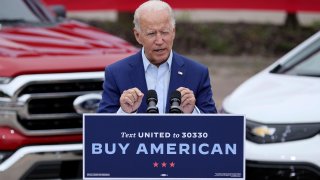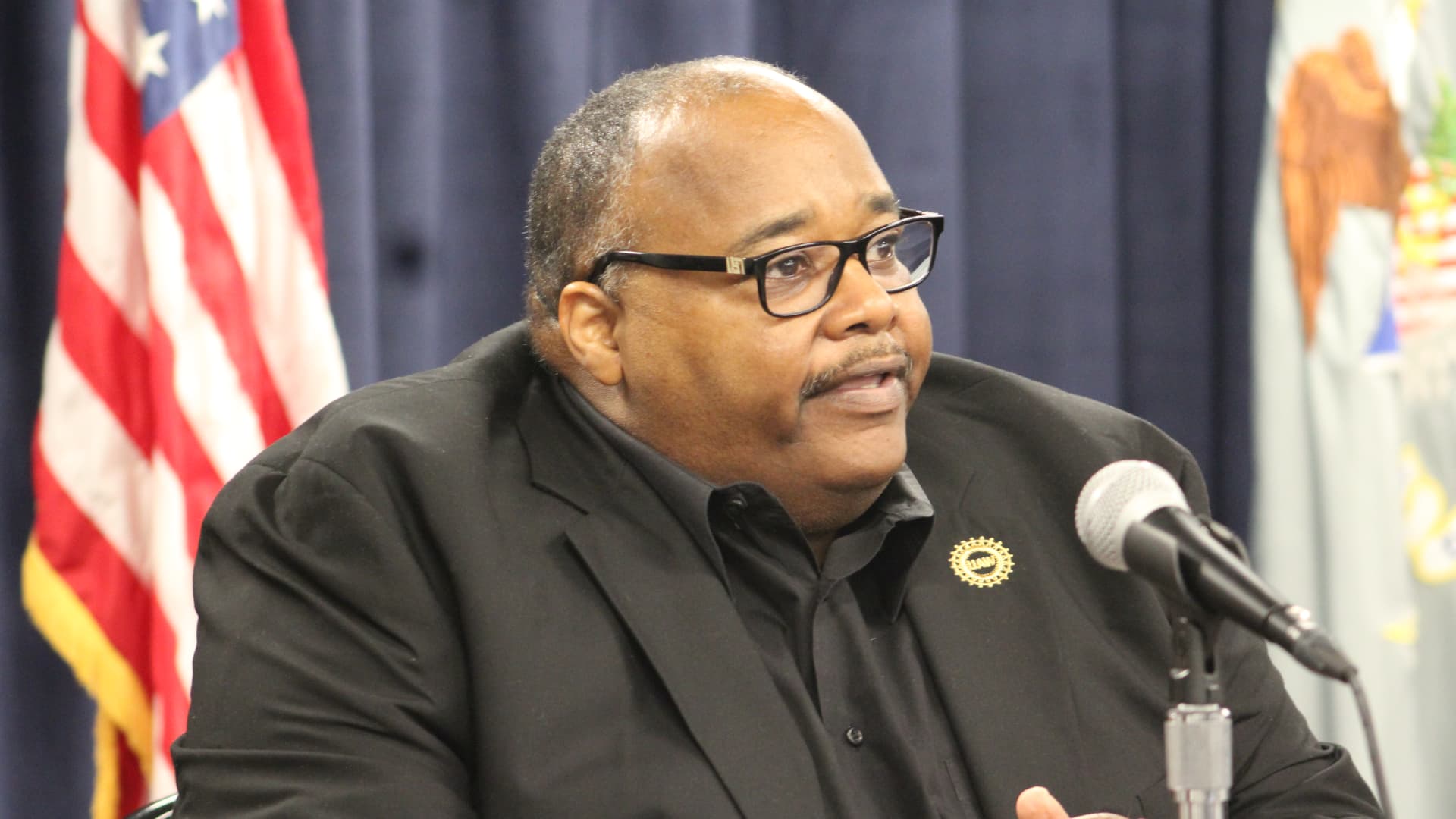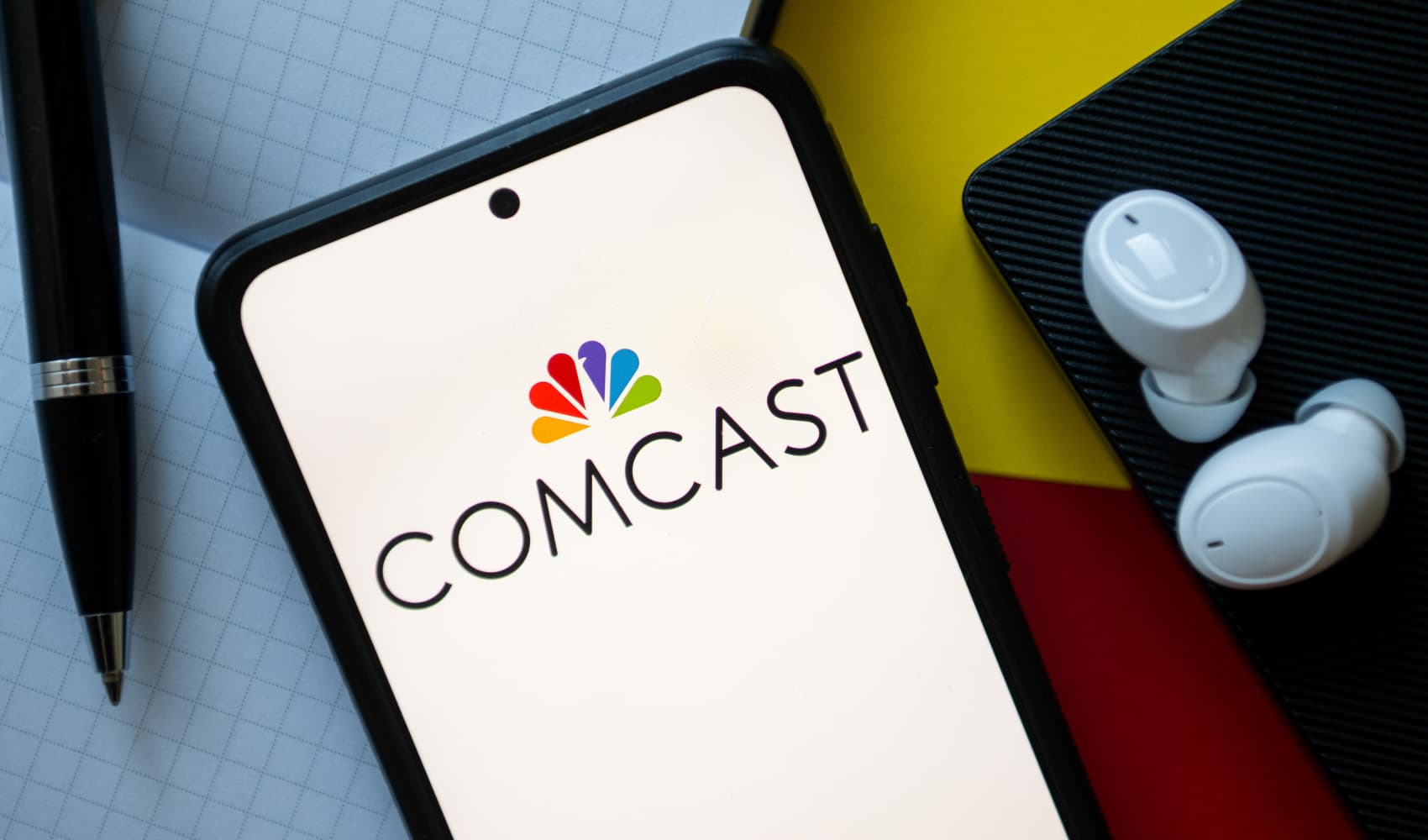
- With President Joe Biden as an ally, the United Auto Workers union is cautiously preparing for the automotive industry's expected transition to electric vehicles.
- The UAW's efforts around EVs include the important and extremely difficult task of organizing workers at companies with new U.S. plants such as Rivian, Lucid or even Tesla.
- It's also battling for work at a U.S. joint venture for battery production between General Motors and LG Energy Solution.
DETROIT – With President Joe Biden as an ally, the United Auto Workers union is preparing to organize electric vehicle start-up companies as it fights to retain, if not grow, its current membership during the industry's expected transition to EVs.
Electric vehicles, which Biden strongly supports, could usher in a new era of American manufacturing jobs for the UAW. But they also hurt the labor movement and undermine Biden's goal of creating 1 million new jobs in the U.S. auto industry.
The vehicles require far fewer parts than those with internal combustion engines, which means potentially fewer factory assembly jobs. A lot of the parts for EVs are made outside the U.S. as well as the vehicle assembly — where workers are paid far lower wages. Many emerging EV start-ups, including industry leader Tesla, also have not been openly supportive of their employees organizing.
We're making it easier for you to find stories that matter with our new newsletter — The 4Front. Sign up here and get news that is important for you to your inbox.
That's led the UAW to push for a "more cautious approach" regarding EVs, while also planning to utilize its "seat at the table" with Biden in other ways such as organizing, according to UAW President Rory Gamble.
"I'm advocating to everybody that we must take advantage of these times to fight for our members and fight for the American worker," Gamble told CNBC in an interview. "American workers deserve more."
Money Report
Gamble said the union is not trying to deter the adoption of EVs, but ensure the transition is fair to American workers, including its 250,000 autoworkers. A 2018 study by the union found that mass adoption of EVs could cost the UAW 35,000 jobs, however Gamble said the union believes that number could be less now.
The UAW's total membership of 397,000 has grown during the last decade as it diversified its membership outside of automotive to areas such as higher education and gaming. But it remains far below its peak of 1.5 million in the late 1970s.
Organizing EV companies
The UAW has been laying the groundwork to organize workers at companies with new U.S. plants, including Rivian, Lucid and even Tesla — an extremely difficult task. It's one of the ways to potentially offset the need for fewer workers.
"That's a given. We are formulating plans to go out to all these start-ups to give these workers a voice," Gamble said, declining to discuss the union's specific plans. "In today's world, you have to think out of the box in how you reach people. We really have to drive home the benefits of belonging to the union."
In recent years, the UAW has largely failed in organizing efforts at U.S. auto plants of foreign automakers, specifically Volkswagen.
Outside of automotive, union organizing received a major setback earlier this month when Amazon workers at a warehouse in Alabama overwhelmingly rejected unionizing. The union leading the organizing last week filed objections with the National Labor Relations Board, accusing Amazon of interfering in its efforts.
Nonunionized companies have largely not supported employees organizing because it can raise pay and benefits costs and mean set, long-term labor contracts. The NLRB recently ruled that Tesla violated labor laws when it fired a union activist as well as when CEO Elon Musk in 2018 tweeted discouraging remarks about paying union dues and giving up company stock options "for nothing?"
Tesla, Rivian and Lucid declined to comment or did not respond to requests for comment.
'Open-door policy'
Having a "seat at the table" with Biden, who promised to be "the most pro-union president you've ever seen," has already paid dividends for the UAW, according to Gamble. The longtime union leader said he's in regular contact with members of the administration and has participated in at least two meetings with Biden.
The most recent meeting with Biden in late February included executives from several automakers, including Tesla's Musk and Ford Motor CEO Jim Farley. Gamble described the conversation as "a very good open, honest, transparent discussion about American auto manufacturing."

"This open-door policy is a blessing for us to have," Gamble said, adding it's not something the UAW had under former President Donald Trump.
Gamble said the union has received an increase in interest from workers to unionize during the coronavirus pandemic as the Detroit automakers instituted Covid-19 safety protocols and paid leaves that others weren't receiving.
"We gave them the best help we could, but we also told them you need to think about joining the union," he said. "This is what it's all about. It's not just about paying dues. it's about protecting your standard of living and, in some cases, like now, protecting your life."
Battery production
The UAW also is battling for work at its current companies, specifically a U.S. joint venture for battery production between General Motors and LG Energy Solution.
The joint venture, known as Ultium Cells, has announced $4.6 billion to build two new plants and create 2,400 jobs in Tennessee and Ohio.
If unionized, which isn't guaranteed because it's a joint venture, those jobs would pay less under the UAW's current contract than those at the automaker's U.S. assembly plants. The batteries are considered components or supplier work compared with traditional assembly jobs.
Gamble said he doesn't think the union has any legal recourse, but it "can impress upon them their moral obligation to make sure these new workers are treated fairly." He added the money GM is using to build the new plants is from vehicles made largely by its UAW members.
GM CEO Mary Barra, when announcing the joint venture in December 2019, said it would be "up to the workforce" to decide whether to unionize. She said the work will follow its "components strategy," which traditionally pays about half to $10 less than the UAW's top hourly assembly wages of more than $32 per hour.
Retirement?
Gamble, however, may not be around to lead the union's planned organizing efforts.
The 65-year-old leader, whose term ends in June 2022, is contemplating retirement after guiding the union through what he describes as a "very dark chapter" in its history.
Gamble was thrust into leading the union amid a federal corruption probe into the UAW in late 2019. The probe, which was settled for the union in December, led to the convictions of 15 people, including two past UAW presidents, three Fiat Chrysler executives and a former GM board member who was a union leader.
"I'm looking at my options right now. But my biggest concern is not personal, it's more about the organization and what's best for the organization," he said. "I'll probably be making the decision very shortly on what the future's going to look like."






